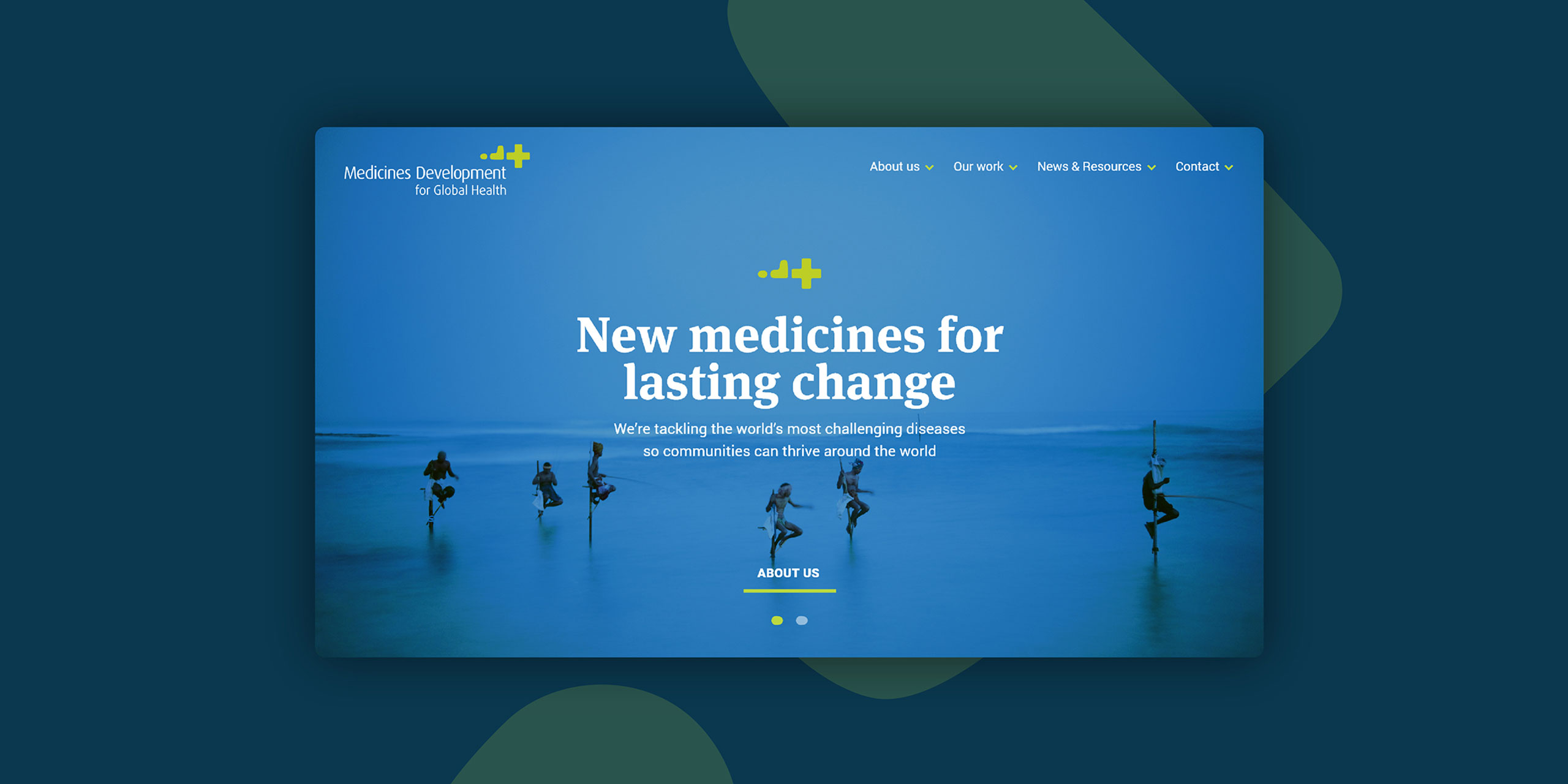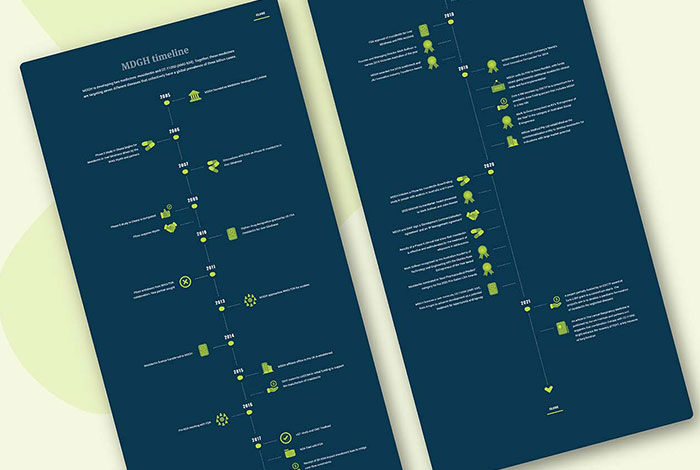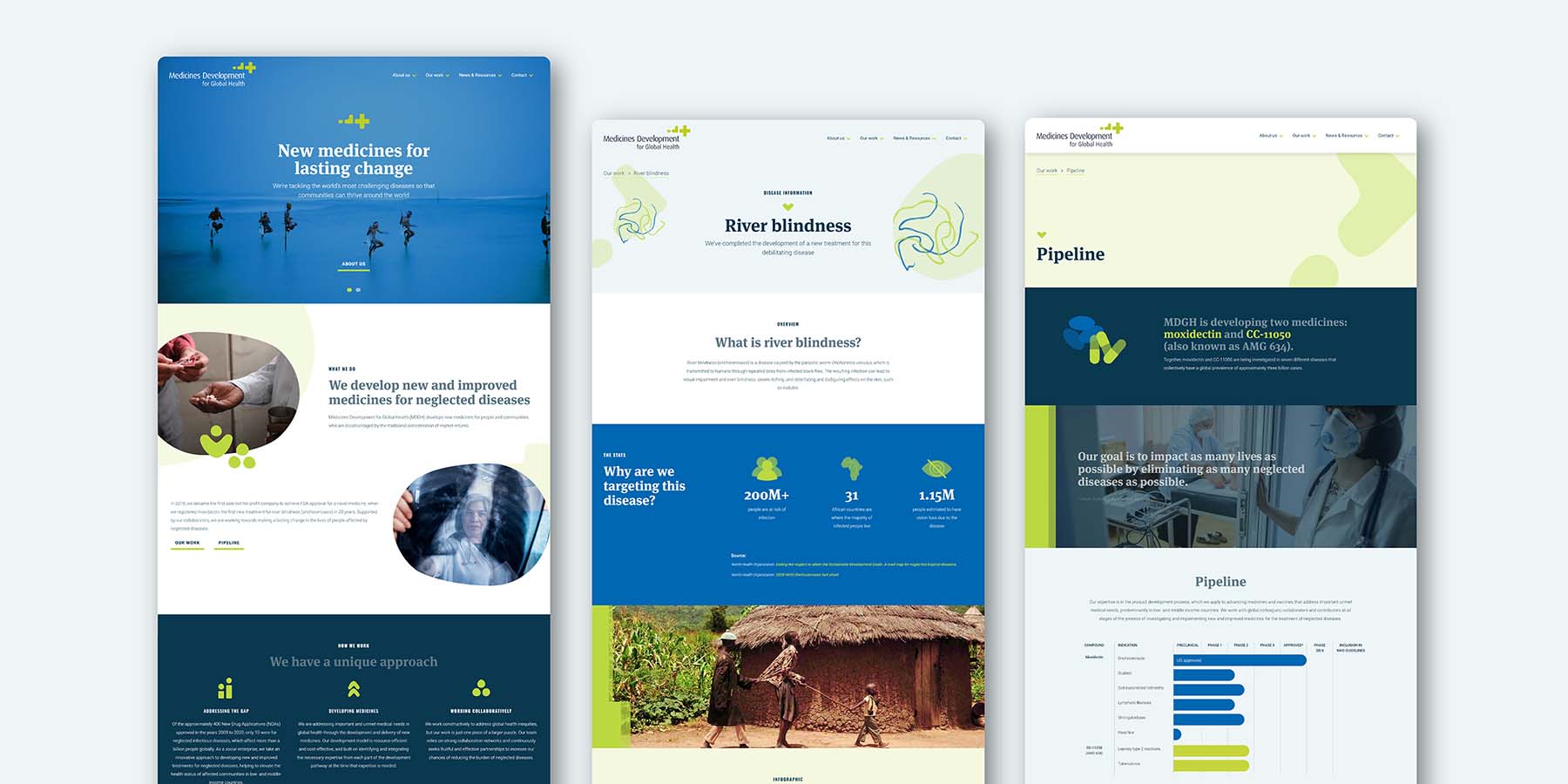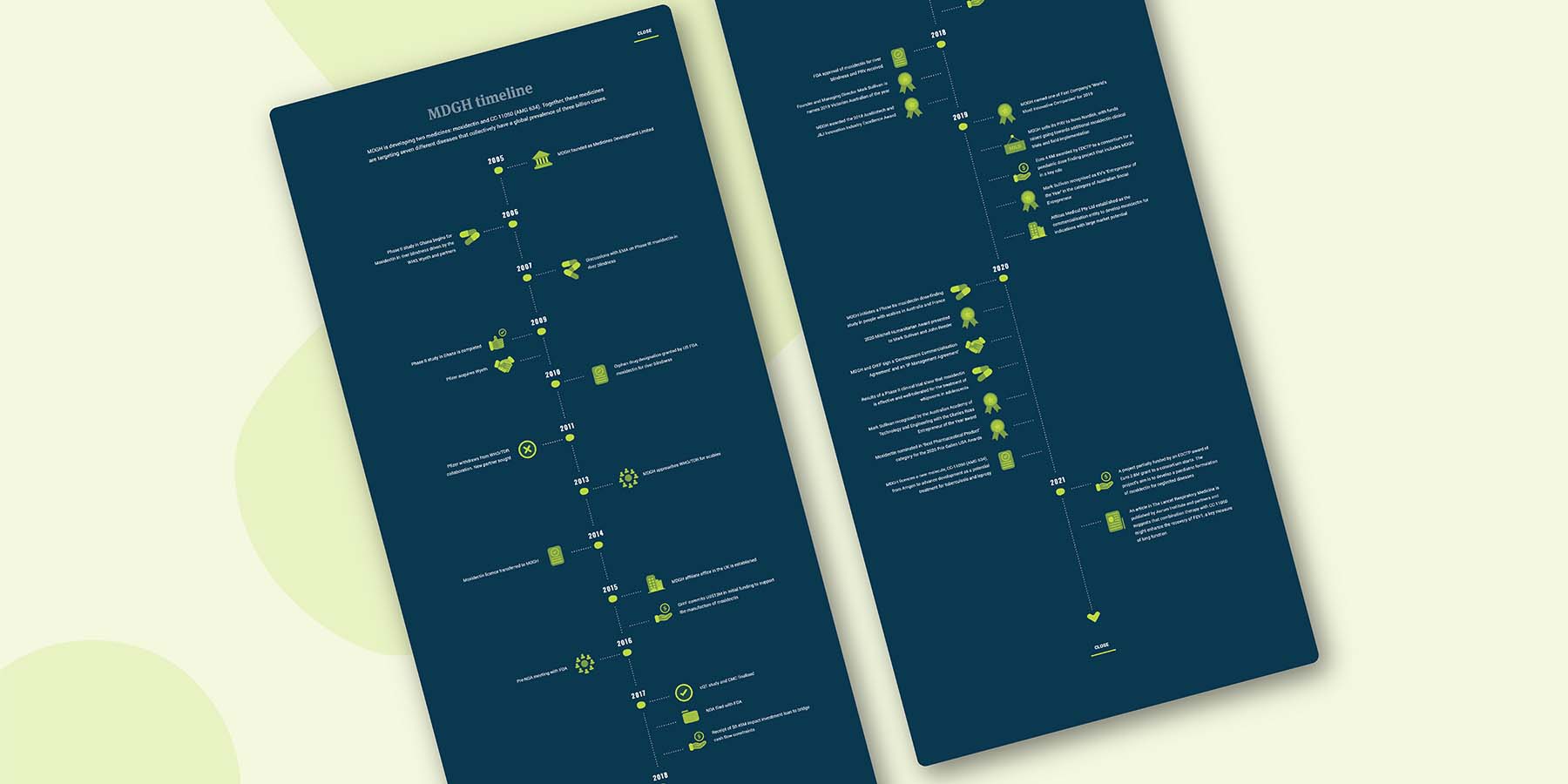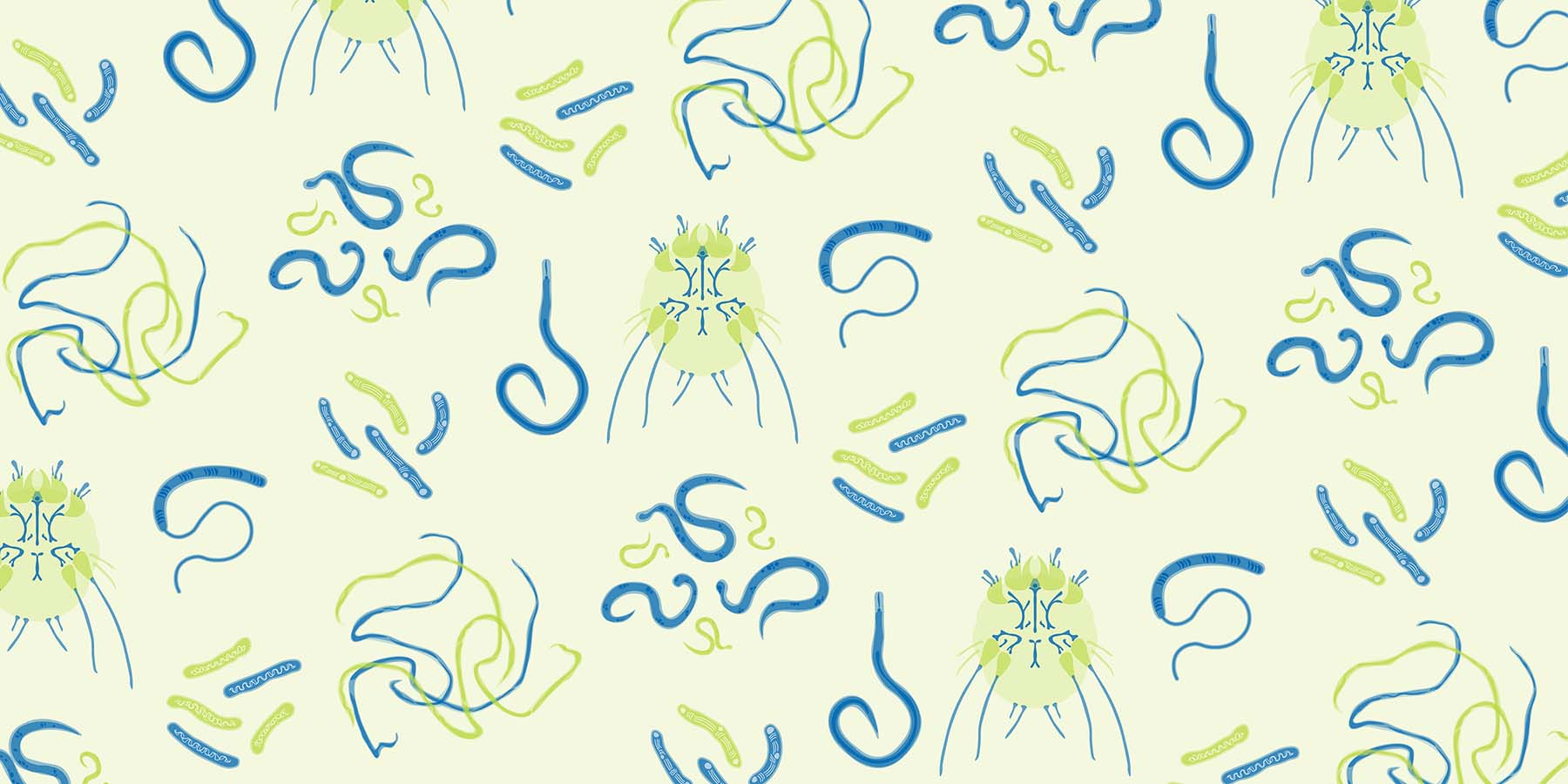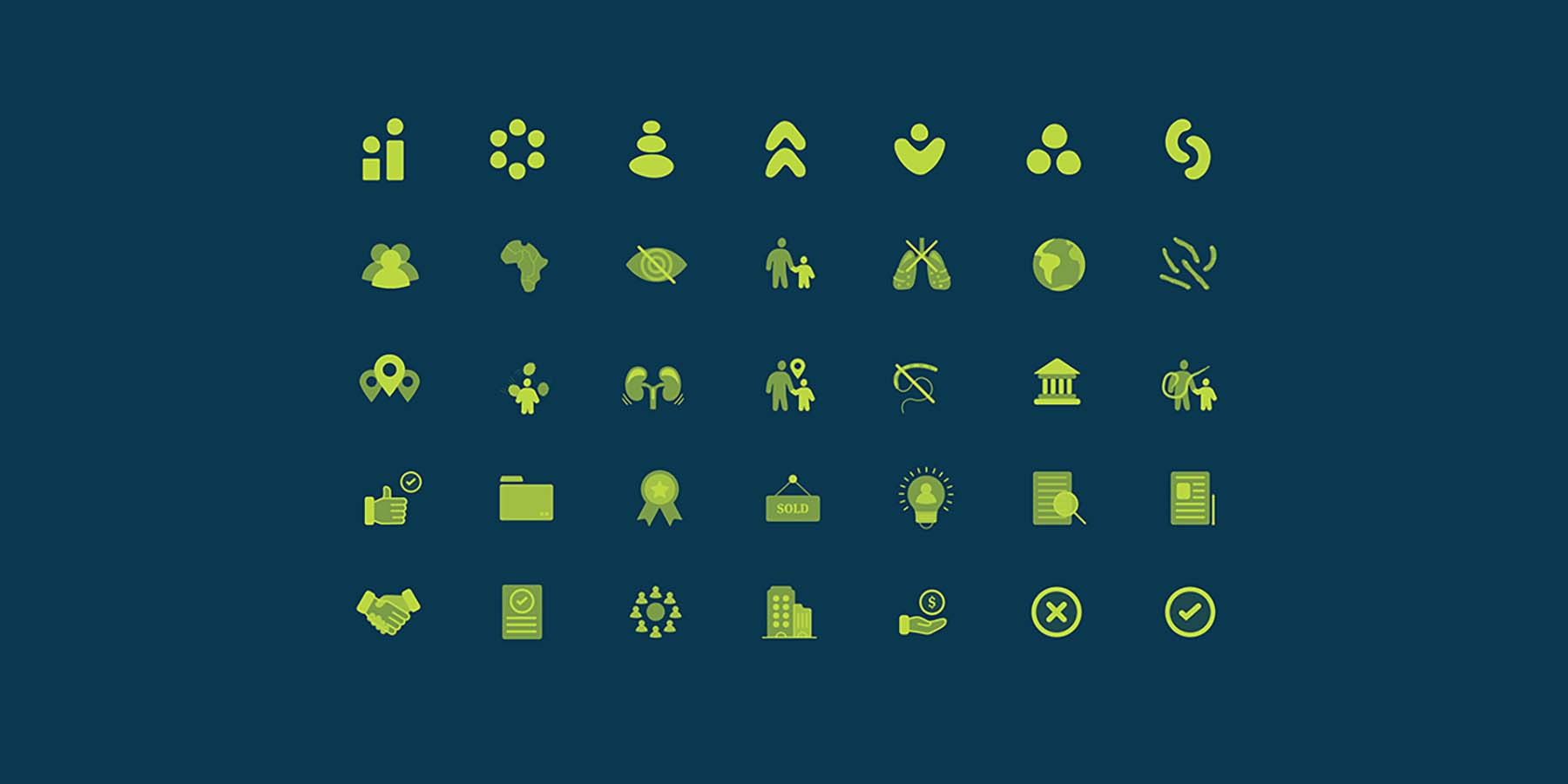Discovery: One of our primary objectives during the discovery phase was to understand each of the audience groups that MDGH work with and ensure the new design would address each of their individual needs. Our copywriter and lead designer conducted interviews with key team members and developed some audience personas to help us with our user experience design process.
UX design, wireframe prototype and content development: We then developed a sitemap and some interactive wireframes of the full website in order to explore page navigation and user flow. We assessed old website analytics and agreed on the best approach to engage with intended web traffic. This allowed our copywriter and the client to put together a copy manuscript for each of the pages of the website.
Visual design phase: We worked on concept designs for the website home page and then once one was selected by the client, we designed static mock ups of every page of the website using Adobe XD, iterating until everyone was in agreement on the approach.
Development: We selected Webflow for the development of this project as we felt it was important to create a website that worked well as an interactive brochure; focusing on beautiful, clean transitions to display the content. As the website did not require complex functionality beyond some filtered custom post types, we wanted to use a CMS that was simple for the client to use and update.
Result: The design team met the design brief and exceeded all expectations. MDGH received rave reviews from all stakeholders on the new website and Ethical Design Co. won two Indigo Design Awards for the project (including Gold in the Design for Social Change category).

